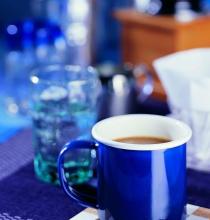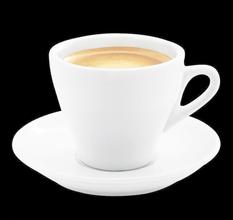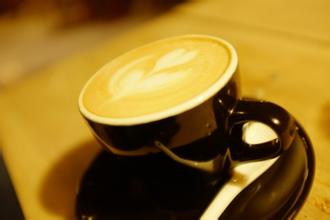Superior Jamaican Blue Mountain Coffee introduces how many coffee producing areas are there in Atlanta Manor?
By 1981, about 1500 hectares of land in Jamaica had been reclaimed for coffee cultivation, followed by investment in another 6000 hectares of coffee land. In fact, today's Blue Mountain area is a small area with a planting area of only 6000 hectares, and it is impossible to grow all the coffee marked "Blue Mountain" there. Another 12000 hectares are used to grow two other types of coffee (non-Blue Mountain Coffee): Alpine Top Coffee (High Mountain Supreme) and Jamaican Superior Coffee (Prime Washed Jamaican).
The real Blue Mountain Coffee is one of the most advantageous coffee growing conditions in the world. Jamaica's weather, address structure and topography provide a unique ideal place. The ridge across Jamaica extends to the east of the island, and the Blue Mountains are more than 2100 meters high. The cool weather, foggy weather and frequent rain reconcile the fertile land of Rain Water, where people use mixed planting to grow coffee next to banana and pear trees on terraces.
Some small estates also grow Blue Mountain Coffee, such as Wallenford Manor, Silver Mountain Manor and Martinez's Atlanta Manor, which are also small-scale plantations, many of which are small landowners whose families have been working on this land for two centuries. The coffee industry in Jamaica is facing a series of problems, such as the influence of the whirlwind, the increase of labor costs and the difficulty of mechanized terraced fields. It is difficult to rationalize planting on many small estates and farms.
However, Blue Mountain Coffee is a coffee retailer that values credibility and keeps some coffee in stock anyway. A leading British retailer said: regardless of the price, he will continue to sell Blue Mountain coffee throughout the year because he has many customers who only recognize "Blue Mountain" coffee.
Now, 90% of the post-harvest Blue Mountain coffee is bought by the Japanese. In 1992, Jamaica sold 688 tons of Blue Mountain coffee to Japan, 75 tons to the United States and 59 tons to Britain. Now that the rest of the world can only get 10% of the output of Blue Mountain coffee, regardless of the price, blue mountain coffee is always in short supply. In the UK, Langford Brothers has been the only supplier for many years. Later, the Edmunds Group also received a supply from the Salda Food Company of Jamaica.
The difference in transportation between Blue Mountain Coffee and other coffee is that it is transported in barrels with a capacity of 70 kilograms, which is a replica of Bonifield barrels produced in Guadeloupe in the last century. The barrel was originally used to carry flour shipped from the United Kingdom to Jamaica, usually with a trademark and the name of the manufacturer. The Coffee Industry Committee issues certificates for all authentic Jamaican coffee and bears a stamp of approval before export.

Important Notice :
前街咖啡 FrontStreet Coffee has moved to new addredd:
FrontStreet Coffee Address: 315,Donghua East Road,GuangZhou
Tel:020 38364473
- Prev

Introduction to St. Thomas of Silver Mountain Manor, Blue Mountain Coffee Manor, Jamaica
By 1969, the situation had improved because the use of Japanese loans improved the quality of production, thus ensuring the market
- Next

Introduction to Lazmus Manor in Columbia Coffee Manor
Manor: Laminita Model Life country of Origin: Colombia Colombia: Nano Narino Variety: Borbon,Caturra,Typica altitude: 1600-2200Meters treatment: washed Washed Flavor description: fruit bright, caramel sweet, cocoa finish, greasy manor: small farmer batch Tolima 1983 country of origin: Colombia Colomb
Related
- Does Rose Summer choose Blue, Green or Red? Detailed explanation of Rose Summer Coffee plots and Classification in Panamanian Jade Manor
- What is the difference between the origin, producing area, processing plant, cooperative and manor of coffee beans?
- How fine does the espresso powder fit? how to grind the espresso?
- Sca coffee roasting degree color card coffee roasting degree 8 roasting color values what do you mean?
- The practice of lattes: how to make lattes at home
- Introduction to Indonesian Fine Coffee beans-- Java Coffee producing area of Indonesian Arabica Coffee
- How much will the flavor of light and medium roasted rose summer be expressed? What baking level is rose summer suitable for?
- Introduction to the characteristics of washing, sun-drying or wet-planing coffee commonly used in Mantenin, Indonesia
- Price characteristics of Arabica Coffee Bean Starbucks introduction to Manning Coffee Bean Taste producing area Variety Manor
- What is the authentic Yega flavor? What are the flavor characteristics of the really excellent Yejasuffi coffee beans?

